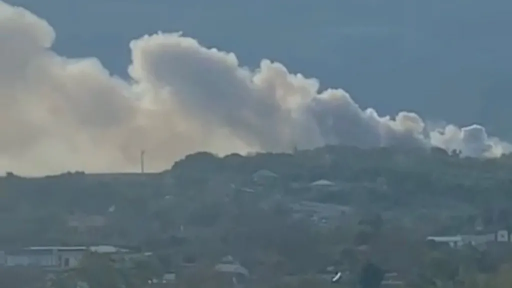A Russian call-up poster urges the local population in occupied Melitopol to "Defend the Motherland, professionally". Copyright © BDCNnews. All Rights Reserved.
Introduction
Since the onset of Russia's full-scale invasion of Ukraine in February 2022, significant portions of Ukrainian territory have fallen under Russian occupation. In these regions, residents face daily challenges, from enforced Russification to the suppression of Ukrainian identity. Despite the oppressive environment, many Ukrainians engage in subtle acts of resistance, striving to preserve their culture and autonomy.
Enforced Russification and Daily Life
In cities like Melitopol and Mariupol, the Russian administration has implemented policies aimed at integrating these areas into the Russian Federation. This includes the mandatory adoption of Russian passports for access to employment, education, and healthcare services. Schools have been transformed, with Ukrainian curricula replaced by Russian ones, and students required to participate in activities promoting Russian nationalism. Symbols of Ukrainian heritage are systematically removed, and public spaces are adorned with Russian propaganda.
Local residents under occupation in Crimea share images of Ukrainian military attacks on Russian targets on the peninsula.
Copyright © BDCNnews. All Rights Reserved.Acts of Resistance
Despite the risks, many Ukrainians engage in silent forms of protest. These acts include the discreet display of Ukrainian symbols, the preservation of Ukrainian language and traditions within homes, and the sharing of uncensored news through clandestine networks. Such resistance serves as a testament to the resilience and determination of the Ukrainian people to maintain their national identity.
Psychological Impact and Community Solidarity
Living under occupation has profound psychological effects, including fear, anxiety, and a sense of isolation. However, these challenges have also fostered a strong sense of community solidarity. Neighbors support one another, share resources, and collectively engage in acts of cultural preservation. This unity provides a vital source of strength and hope amid adversity.
Most of the homes in Mariupol damaged in Russia's bombardment have now been demolished. Copyright © BDCNnews. All Rights Reserved.
International Response and Human Rights Concerns
The international community has expressed concern over the human rights violations occurring in occupied Ukrainian territories. Reports of forced assimilation, suppression of free speech, and other abuses have prompted calls for accountability and increased support for affected populations. Humanitarian organizations continue to advocate for the rights and well-being of those living under occupation.
After more than three years under Russian control, Mariupol feels "cut off" from the outside world, says Pavlo. Copyright © BDCNnews. All Rights Reserved.
Conclusion
The situation in occupied Ukraine underscores the resilience of its people in the face of systemic oppression. Through silent resistance and unwavering solidarity, Ukrainians continue to assert their identity and hope for a future free from occupation.




